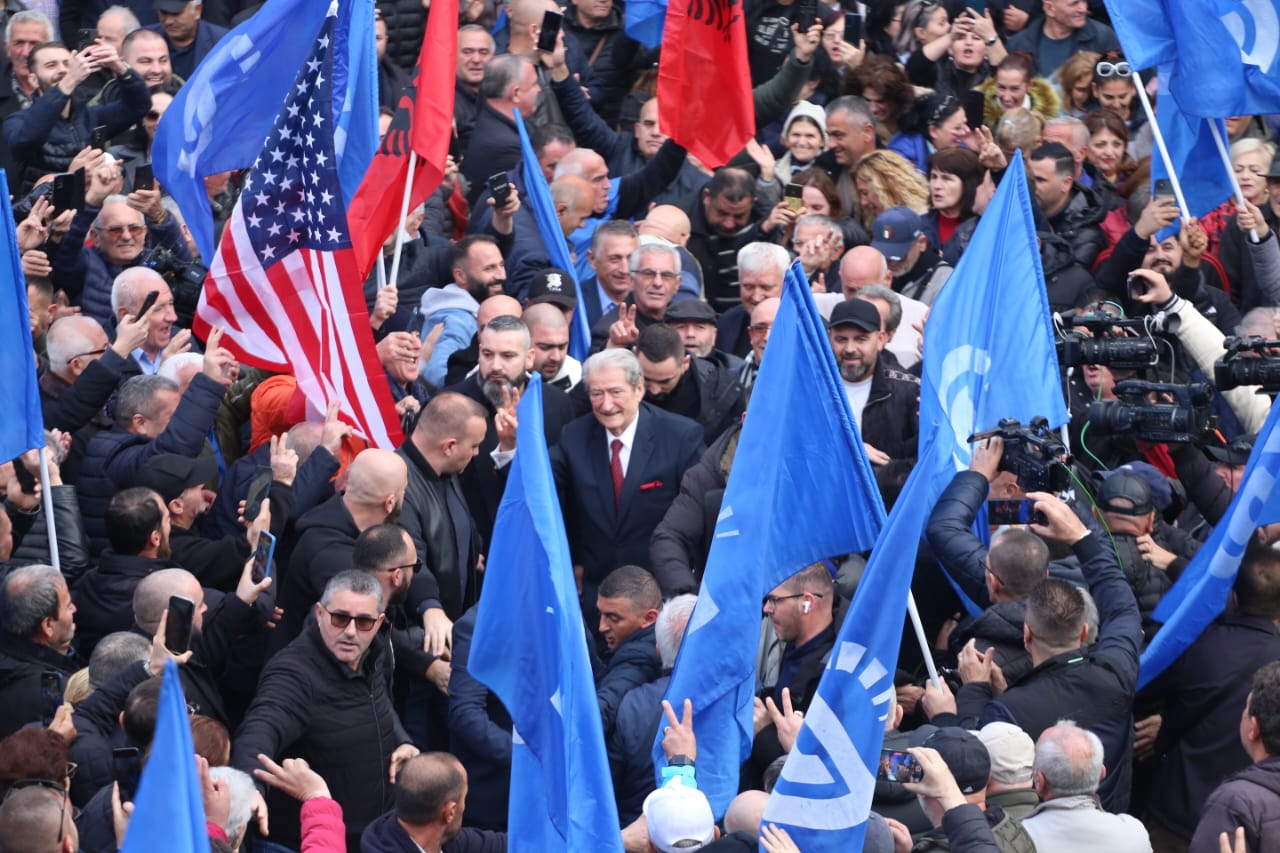Sali Berisha returns to DP headquarters, denounces legal case as political

After spending 331 days under house arrest, Democratic Party leader Sali Berisha returned to his party’s headquarters on Wednesday, greeted a small crowd of enthusiastic supporters. In a press conference, Berisha dismissed the charges against him as politically motivated and accused Prime Minister Edi Rama of orchestrating a “coup.” He reiterated his party’s demand for a technical government before the May 2025 elections, calling it a “non-negotiable condition.”
Why is this important: Since the charges were first brought against him by the Special Structure Against Corruption and Organized Crime (SPAK), Berisha has consistently attacked the institution. However, his stance has been inconsistent—accepting SPAK’s findings when they implicated Socialist Party officials but rejecting the same process when directed at him. During today’s remarks, Berisha praised the judge who lifted his house arrest, stating she upheld “the morality of the law and the Constitution,” as the case has now been sent to trial.
This move by the court aligns with the legal argument that Berisha no longer poses a risk to tamper with evidence, yet SPAK has announced plans to appeal the decision.
Context: Berisha, undeterred by SPAK’s legal actions, vowed to continue his political battles. “Nothing in this world can stop Sali Berisha in this fight,” he declared, challenging Prime Minister Rama to a televised debate, where he claimed he would decisively defeat his rival.
While Berisha projects confidence about his party’s chances in the 2025 elections, the political landscape tells a different story. The ruling Socialist Party, led by Rama, has spent over a year consolidating its organizational structure, holding internal forums, and rejuvenating its ranks. In contrast, the Democratic Party has been consumed by internal and external legal battles.
Opposition in turmoil: For much of the past year, the opposition’s efforts have been dominated by high-profile legal challenges. Protests held in recent months have largely been motivated by the judicial processes targeting Berisha, his party’s imprisoned deputy chairman Ervin Salianji—convicted of false testimony—and Ilir Meta, the leader of another opposition party and former president, who faces charges of corruption, money laundering, and asset concealment.
As Berisha returns to the public stage, the opposition faces significant challenges in rallying broader public support, especially as its agenda appears increasingly focused on the legal woes of its leadership rather than broader political reforms or electoral strategy. Meanwhile, the Socialists aim to secure an unprecedented fourth term in office, banking on their internal unity and strategic groundwork. The road to the 2025 elections promises to be contentious, with Berisha signaling that he will not back down from his confrontational approach.


